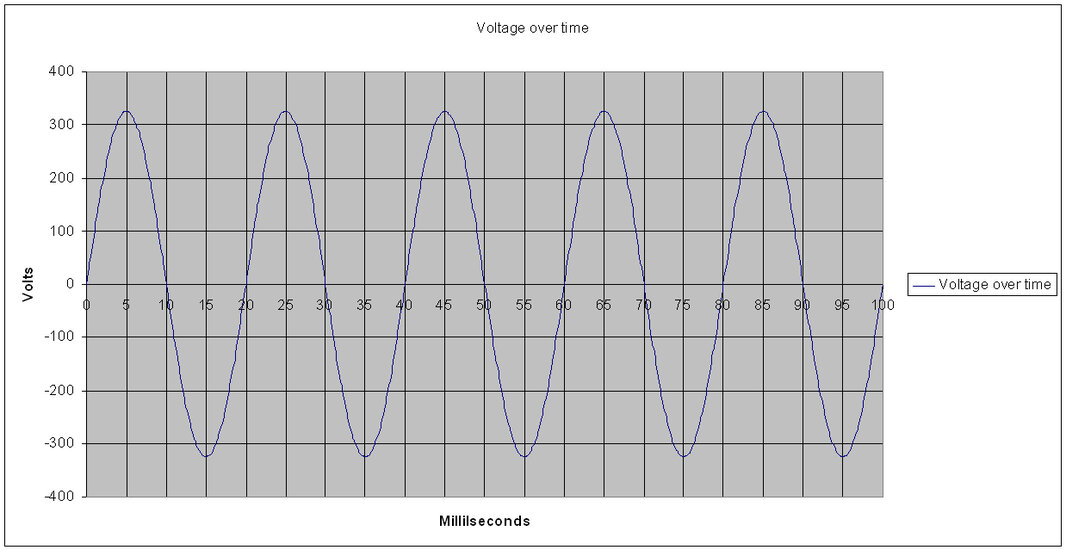Good point Trev and I do realise I'm on a sticky wicket. Basically I have to defend myself for not adhering to the recommendations of an advisory document. Looking at both scenarios:
In the case of the 4293 I would point out that the work I had had not made the installation any less safe than before I had arrived. I would also point out that the only solution was for a board change and that I was well aware that the customer was not in an economic position to sanction that.
I the case of the 61009 I would say that I had advised the customer of the situation but he was not prepared to fork out an extra 50 quid for a replacement.
I would also have to argue against the mythical properties of the 30 mA RCD. Tests show that RCD's ramp at 22-25 mA. Fibrillation occurs at 100 mA. However, a sustained contact at 20 mA (can't let go situation for say 4 or 5 seconds) could be equally fatal. So if your body won't accept 30 mA there is every possibility of a fatality......
If you are accepting a 25-30 mA current via a live wire I would submit that you would survive it whether it be 40 ms, 83 ms or for that matter 500 ms as the RCD would trip.
The RCD is just not the universal panacea we all believe. Sure if you slice your hedge trimmer cable there is a chance the RCD will trip. There is absolutely no 100% certainty that touching a live part will trip an RCD..it really depends on the condition of your body at that moment in time.
2 recent fatalities spring to mind...Emma Shaw and the young girl with the extension lead and ladder. Now I do not know the facts of these 2 cases. Certainly in the case of Emma Shaw there is every likelyhood there was RCD protection. Additional work had been carried out by an electrical firm who had a QS so it's very likely there was RCD protection, Poor testing by an inexperienced operator resulted in this tragedy. For the young girl, again I don't know if there was an RCD involved , but we must acknowledge that an RCD will not always save a life.
RCD's are great for clearing earth faults, but a well constructed and tested installation must always be the goal of the electrical contractor, combined with rigorous testing. The importance of good EFLI in my opinion is more important than RCD protection. For me RCD is additional protection and no more.
As a nation we suffer 10-20 electrical deaths a year. All governments have shown by their actions that this is sadly acceptable. Obviously more resources will go to road safety as this is a more pressing problem.
I do like Engineer54's submission about 6 mA protection , that is without doubt a true lifesaver and is the way to go. Imagine a 30 way board in each house, each room and each appliance wired individually, no doubt fatalities would almost be eradicated. Sadly, that is in the realms of fanatsy as we live in a country dictated by costs and economics.
To a degree I am criticising the 30 mA RCD...it is way too high a current, but that is what we are saddled with. I know for all of us we make a serious attempt to comply with everything in the BGB. I certainly do, I also take extreme pride in my work, and can't compete with most people on an economic basis because my work takes longer. I get most of my work on recommendation because I work to a high standard and communicate all through the installation with my customer as to what I am doing and why I'm doing it. Probably fair to say that applies to all the veteran posters on this forum, because they are clearly interested in the subject matter rather than most people who go home and switch off from work.
Although new to the forum I have read it for years and it certainly increase my knowledge base. I would only say that sometimes inexperienced people get a rough ride. It is very difficult for you guys that are at the top of tree to be patient with what you see as idiotic postings...try to be more patient you guys...so easy to forget that you were once youngster who made errors or lived with uncertainty. Anyway a big thank you to all...dissemination of knowledge is a great gift.









